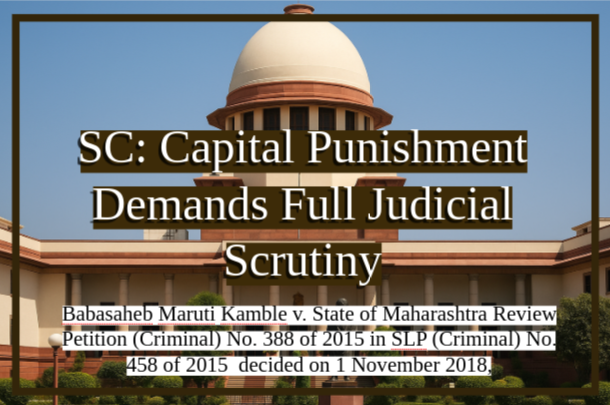SCOI on NI Act: Demand Notice Must Match Cheque Amount
- M.R Mishra

- Sep 21, 2025
- 3 min read
In Kaveri Plastics v. Mahdoom Bawa Bahrudeen Noorul (2025 INSC 1133), the Supreme Court of India delivered a significant ruling on the strict compliance required under Section 138 of the Negotiable Instruments Act, 1881.
Section 138. Dishonour of cheque for insufficiency, etc., of funds in the account.Previous Next 1[Where any cheque drawn by a person on an account maintained by him with a banker for payment of any amount of money to another person from out of that account for the discharge, in whole or in part, of any debt or other liability, is returned by the bank unpaid, either because of the amount of money standing to the credit of that account is insufficient to honour the cheque or that it exceeds the amount arranged to be paid from that account by an agreement made with that bank, such person shall be deemed to have committed an offence and shall, without prejudice to any other provision of this Act, be punished with imprisonment for 2[a term which may be extended to two years], or with fine which may extend to twice the amount of the cheque, or with both: Provided that nothing contained in this section shall apply unless-- (a) the cheque has been presented to the bank within a period of six months from the date on which it is drawn or within the period of its validity, whichever is earlier; (b) the payee or the holder in due course of the cheque, as the case may be, makes a demand for the payment of the said amount of money by giving a notice; in writing, to the drawer of the cheque, 3[within thirty days] of the receipt of information by him from the bank regarding the return of the cheque as unpaid; and (c) the drawer of such cheque fails to make the payment of the said amount of money to the payee or, as the case may be, to the holder in due course of the cheque, within fifteen days of the receipt of the said notice. Explanation.-- For the purposes of this section, debt of other liability means a legally enforceable debt or other liability. |
What's The Matter?
The case arose when a cheque issued for ₹1 crore bounced, but the statutory demand notice under proviso (b) to Section 138 erroneously demanded ₹2 crores. The appellant argued that this discrepancy was a typographical error and should not vitiate the complaint.
The trial court initially refused to discharge the accused, but the Delhi High Court quashed the complaint on the ground that the notice did not demand the cheque amount, thereby failing the statutory requirement. On appeal, the Supreme Court upheld the High Court’s decision, stressing that penal provisions must be construed strictly and that the “said amount” in Section 138(b) unambiguously refers to the cheque amount.
The Court relied on precedents such as earlier to affirm that while incidental charges or interest may be added if specified separately, the statutory notice must clearly and correctly demand the cheque amount itself.
Any variation whether higher, lower, or even a claimed typographical error renders the notice invalid and the complaint non-maintainable.
This judgment underscores the technical nature of Section 138 NI Act proceedings, where even minor errors in the statutory notice can defeat an otherwise genuine claim.
It reinforces the message that meticulous drafting of notices is indispensable in cheque dishonour litigation, as courts will not relax statutory requirements on grounds of equity or inadvertence.
\









Comments